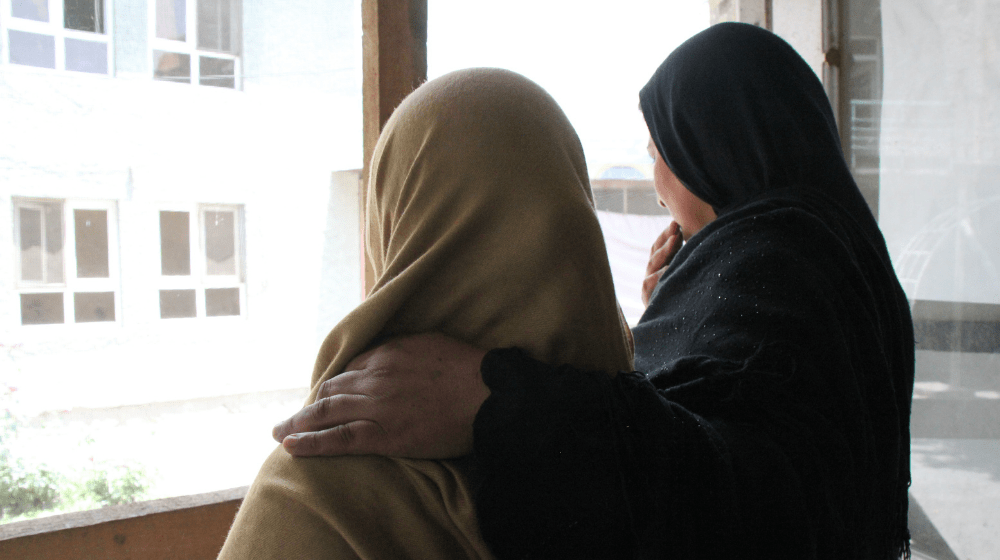Kabul, Afghanistan – With International Day for the Elimination of Violence against Women on 25 November launching 16 Days of Activism Against Gender-Based Violence, UNFPA, the United Nations sexual and reproductive health agency, calls on humanitarian partners to unequivocally commit and respond to the health and protection needs of the 9 million women and girls who are bearing the brunt of the current crisis in Afghanistan.
“Even before the recent upheaval, the needs of women and girls were staggering: Over half of Afghan women experience violence during their lifetime, and one Afghan woman dies from a pregnancy-related complication every two hours,” said Dr. Aleksandar Sasha Bodiroza, UNFPA Representative in Afghanistan. “Their situation will get worse if the international community does not act, and act soon.”
According to UNOCHA, nearly 80 percent of the 670,000 internally displaced people in Afghanistan as of mid-November are women and children who are being disproportionately affected as catastrophe looms in the country.
In spite of challenges, UNFPA continues to provide essential and life-saving reproductive health services – including maternal care and psychosocial services – largely with support from local communities. Over 97,000 women and girls, men and boys accessed services in October 2021 through 171 Family Health Houses, 20 mobile health teams, four emergency clinics, and other delivery points across the country. UNFPA is scaling up efforts and expanding its bases to reach more people.
As the health system teeters on the brink of collapse, UNFPA is also distributing emergency reproductive health kits to health facilities to keep services functioning, including for emergency obstetric care for the estimated 21,500 pregnant women who will likely experience complications or require a Caesarean section in the next three months. Dignity kits that contain items such as sanitary pads and other personal hygiene supplies are being distributed to displaced women and girls to support their psychosocial and physical wellbeing. The kits also free up money for food as hunger knocks at the door of many Afghan households.
“We continue to support efforts that ensure women and girls can give birth safely and live free from violence” said Dr. Bodiroza. “The human rights and dignity of all Afghan people, especially women and girls, must be protected and respected if we are to maintain the gains made over the past two decades.”
In the past 20 years, women and girls have fought for their rights with uneven, but important, successes. Access to health care expanded, including the provision of prenatal and antenatal care, as did the number of skilled birth attendants and the use of modern contraception. All of this had significantly reduced one of the highest maternal mortality rates in the world. At the same time, legislation was enacted to protect women and girls from violence, and support services such as legal aid were established for survivors, facilitating access to justice.
The humanitarian crisis has now reached a new, perilous stage in Afghanistan with the arrival of a harsh winter. The international community must stand in solidarity and work to ensure that funds make their way into the country immediately, taking specific and urgent steps to address the vulnerabilities and needs of women and girls, including restrictions on their mobility. Afghan women must also be on the frontline of humanitarian aid efforts and continue to provide services for vulnerable women and girls who remain deeply reliant on services provided by other women.
--
ENDS
--
For more information, contact:
In Kabul: Arlene Alano – Tel: +93728105966, E-mail: alano@unfpa.org
About UNFPA:
UNFPA is the United Nations sexual and reproductive health agency. UNFPA's mission is to deliver a world where every pregnancy is wanted, every childbirth is safe and every young person's potential is fulfilled. UNFPA calls for the realization of reproductive rights for all and supports access to a wide range of sexual and reproductive health services, including voluntary family planning, quality maternal health care and comprehensive sexuality education.


